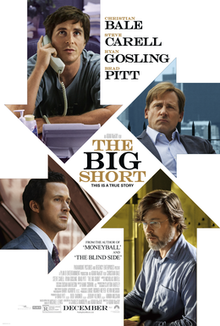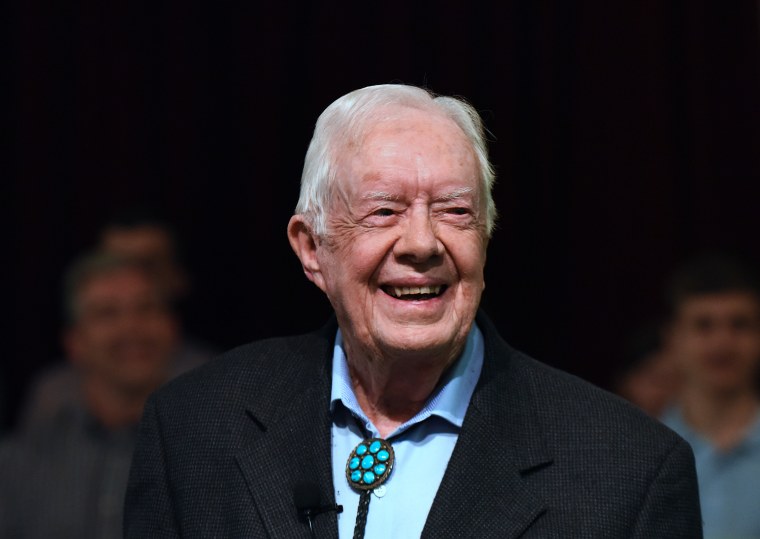As Halloween, the Celtic Samhain, the night that, in ancient tradition, the spirits and goblins of the inner earth escape, for one bone chilling evening, their chthonic imprisonment and roam about the planet, weaving magic, confusion, and mystery into the lives of those still living, approaches, we wonder. Why do we think about such things? Why do we speculate on what might lay on the "other side"?
Is there another reality? Are the facile assumptions on which we have long relied rational and true? Amidst all its silliness and frivolity, Halloween should make us think that our assumptions may not be what we imagine them to be. That there is other, that there is more. There is a beyond, a somethingness which we might not otherwise see.Tuesday, October 31, 2023
Monday, October 30, 2023

It's extraordinarily difficult to speak religion into the public square. I was reminded of this afresh after I read several articles about the religious beliefs of Mike Johnson, the newly elected speaker of the U.S. House of Representatives. Although I have no reason to doubt Johnson's description of himself as a born again evangelical Christian, as someone who also considers himself to be a born again evangelical Christian, I do have reason to question how Johnson sees his beliefs working out in his capacity as a public figure.
Even allowing that some of Johnson's remarks may have been intended either for political soundbites or taken out of context, I still find them troubling. I find them troubling not only because I do not share the conclusions to which they come, but, bigger picture, I find them troubling because they seem to overlook the very fragile hold we pitiable and finite humans have on the meaning of the biblical text.
Not one person on the planet has a monopoly, in all times and places, on the precise and absolute meaning of biblical scripture. Hence, when I read that Johnson proclaimed that God has "ordained and allowed each one of us to be brought here for this specific moment," using words that he is surely basing on his understanding of the absolute sovereignty of God (a truth I readily affirm), I cringe. Has he really considered the implications of this statement?
Johnson also states that while the Bible teaches Christian to practice "personal charity," the commandment (the Hebrew belief, one embedded deeply in the Old Testament scriptures, scriptures which Christians almost universally hold to be as true as those of the New Testament, that we must care for the ger, the "foreigner" or "stranger" re: immigrants) "was never directed to the government."
Really? Do not most Americans agree that the American government is a government (to quote Abraham Lincoln in his Gettysburg Address) "to the people, by the people, and for the people" and that, rightly, understood, the government is therefore an extension of the people? Does charity stop at our front door?
Again, Mr. Johnson, think carefully about how you frame your beliefs. You may end up not "Christianizing" America, as seems to be your goal, but instead will fracture it even more than it already is. Be careful for what you wish for.
God is a very big God.
And no, we do not "got this."
Wednesday, October 25, 2023
Yesterday I talked about Samuel Coleridge and imagination. Today, I talk about another person who grappled with imagination: Blaise Pascal. A philosopher and essayist of the seventeenth century, Pascal lived nearly two hundred years after Coleridge. His time was distinctly different from that of Coleridge. Nonetheless, Pascal's thoughts about imagination offer us some useful insights as we grapple with the rise of what some commentators have called "expressive individualism," the notion that, divorced from any universal moral anchor, humanity is fit only to express individual identity and nothing more.
Pascal observed that as much as we would like to suppose that we humans are creatures of rationality, we are ultimately creatures beholden to our imagination. Our emotions, he noted, play a far greater role in how we live and make decisions than our reason.
Pascal is on to something. Yes, we use reason to make decisions, but no, we do not make decisions solely on the basis our reason. After all, we are creatures of imagination. And we cannot help it: it's how we're made.
So what does this mean today? Pascal was a person of faith. Reason, he observed, will take people to the brink of grasping God. Absolutely. But it is only imagination that will allow them to move themselves to a position where they are willing to believe in the existence of a being whom they cannot visibly see.
In a personal universe, imagination is the road to ultimate understanding.
Tuesday, October 24, 2023

Samuel Taylor Coleridge, the famous British Romantic poet, once observed that imagination is how the self grapples with its perception. Put another way, imagination is how we give life to what we perceive.
Writing nearly two centuries later, modern neurobiologists conclude that imagination is the result of metaphoric processes which happen, often unconsciously, in our brains. It is the product of our innately image making selves.Thursday, October 19, 2023
This week, as my siblings and I reminded each other, marks another year, another year since the passing of our father forty years ago. Despite the span of those decades, we still miss him, and our mother as well. Time may heal some, yes, but time will never fully overcome the scars its events imprint on our lives. There are losses that, try as we might, we cannot completely assuage. Although we learn to live with them, though we may even come to develop a measure of acceptance about them, we will never totally erase them from our hearts. For always and forevermore, they are embedded in the innermost patterns of our soul.

Tuesday, October 17, 2023

Around this time a few years ago, I wrote, using an excerpt from my book Imagining Eternity, about the moment in which I decided that Jesus Christ was undeniably divine, real, and objectively and subjectively true.
This week marks forty-nine years since that moment in the mountains outside of the tiny town of Jasper, Alberta, in the heart of the Canadian Rockies. They are years that I find difficult to fathom or measure; year upon year of believing in and grappling with a person whose fullness I cannot in this life exhaustively assess; year upon year of following and listening to a being who has never made himself visibly known to me; year upon year of trusting in a invisible personal transcendence.
So why believe? Why live a life that, as the apostle Paul puts it, is one of faith and not one of sight? Why be a rational being who is living a life devoted to the non-rational (but not irrational)? Oddly, I live this life because I see that faith, believe it or not (no pun intended!), is, in light of everything that this life comprises, the most rational thing I can do. Given the fact of my personhood; the fact of my mind and consciousness; the fact of the universes's incredibly complexity and order; the fact of the moral sense; the historicity and veracity of the Bible; and the millions and millions of people, including me, who have completely changed, in a positive way, their outlooks on themselves and existence in response to what they perceived to be a divine inbreaking or call: I see no other way to understand existence.Monday, October 16, 2023
Although he died in an asylum at the end of the nineteenth century, the German philosopher Friedrich Nietzsche continues to speak to us today. I recently came across a rarely published addendum to his work, Will to Power, and share it here.
So does Nietzsche write, "All these bold birds who fly out into the wide, widest open--it is true! At some point they will not be able to fly any farther and . . . But who would want to conclude from this that there was no longer a vast and prodigious trajectory ahead of them. All our great mentors and precursors have finally come to a stop . . . and it will also happen to you and me! Of what concern, however, is that to you and me! Other birds will fly farther!"Although divining the precise intentions of Nietzsche's mind is difficult, it seems that what he is saying here is that even though we one day will "fly" no longer, others will. The human adventure will continue. It's a reassuring thought. By the time he penned these words, Nietzsche, though he was the son of a Lutheran pastor, had come to reject everything about Christianity and its promise of eternal life. It was a religion for weaklings, he averred. Better to live bravely and die!
Friday, October 13, 2023
Are you familiar with the Russian band and performance art group Pussy Riot? Pussy Riot gained international attention in February 2012 when some of its members entered a Russian Orthodox cathedral and performed songs parodying Vladimir Putin and what they considered to be his perverted relationship with church. Although many roundly condemned Pussy Riot's actions--entering a sacred space and performing rock songs--its point was clear: Putin, religion, and politics do not mix well.

It's difficult to disagree. Although three of the band's members were eventually arrested and two of them served time in labor camps in Siberia, they, and the band itself remain unrepentant. Indeed, at the present moment the band is touring internationally, performing, continuing to speak out against Vladimir Putin and steadfastly promulgating their belief that he is twisting the Russian culture to suit his own political ambitions. Given Putin's violent actions against political dissent, we should consider them to be extraordinarily brave women.
We may condemn how Pussy Riot presents its message, but we should not dispute its essential underpinnings: we cannot put God into a box of our own making. He, and we, are more than that.
Thursday, October 12, 2023
Unless you've been living in a cave, you are undoubtedly aware of the war in which Israel and Hamas are currently engaged. By nearly any measure, it's a tragedy, an immense tragedy, a trauma nearly beyond comprehension. On all sides.

Although nearly everyone who is taking an interest in the war has an opinion about what its outcome should be, I do not wish to advance mine in this blog. I instead wish to state two things. One, peace--of any kind--is complicated. The Hebrew and Arabic words for peace, shalom and salam, respectively, describe peace as an inner wholeness, a completeness of being, a harmonious integration of mind, body, and heart. It is this definition that I believe that we must try to fit into the resolution of this conflict. But it will not be easy.
Two, as we think about this war, its toll on civilians in particular, let us not forget the plight of civilians trapped in other wars around the world. In this regard, I think of Ukraine and its struggle against a rapacious Russia. That notwithstanding, I remember also the thousands of people who have died in the earthquake that recently struck western Afghanistan. Let us not forget their survivors, either.
Pray for the planet, pray for its people, pray for God.
Wednesday, October 11, 2023
You may not be familiar with the Supremes, but if you are, you know that the three women who comprised the group made hit after hit in the Sixties, then faded away. Diana Ross, the group's lead singer, however, went on to international fame. On the other hand, her fellow members did not. They have lived out the rest of their days in relative obscurity.
Hence, when I noticed that one of these women, Cindy Birdsong, had been admitted into a conservatorship, her financial affairs now placed under the control of one of her relatives, I could not help but feel sad. Sixty years ago, Ms. Birdsong was a major star of the burgeoning world of pop music. Today, however, all that is gone and largely forgotten. All she has are memories and, judging from the news of this conservatorship, even those are fading, too.
How grand is the human being, how remarkably creative are we! Tragically, however, how brittle is our hold on ourselves and our lives: we vanish so quickly. Such dichotomy causes us to wonder: what is the point?
For that is the point. Unless there is a meaning, a larger meaning to us and our lives, we really do labor in vain.
Is there a God?
Monday, October 9, 2023

It's Columbus Day in the U.S. It's also a day that marks one of the most pivotal years in human history. People of two hemispheres, neither of whom had been aware of the other, suddenly were, almost overnight, finding themselves confronting worlds that literally blew their collective minds. No one would ever be the same.
Sadly, however, although 1492 may have been a momentous and lucrative year for many Europeans, it was a terrible one for the natives of the Americas. 1492 marked the beginning of a lengthy pattern of European oppression and exploitation of the peoples of the Americas, a run of centuries of difficulty and pain, pain which, in some cases, continues to this day.
The worse of it is that in too many instances this exploitation was justified in the name of the Christian God. It was an awful stain on the love of God.
Historian Erna Paris once observed that, "Attaching God to history is the most powerful nationalism of all." Whenever we try to juxtapose God and the history we are trying to create, we blur a line we cannot possibly cross: the boundary between what is here and what is not, the border between the visible speculations of finitude and the hidden certitudes of infinity. We're thoroughly arrogant.
Love Columbus or hate him; either way, use this Columbus Day (or Indigenous Peoples Day) to remind yourself of your so very limited view of what is real and true, to strive into a history we can all share.
Thursday, October 5, 2023

Do you listen to opera? Not everybody does, and not everyone enjoys it. Some operas, however, are worth listening to.
Consider Guiseppe Verdi, the famous Italian composer of the late Romantic Era. You may have heard of some of Verdi's most famous works, such as the "Rigoletto," "Il trovatore," and "La Traviata."
Interestingly, Verdi's innovative operas struck a chord in the European musical imagination. They opened up a broad range of new choral possibility. For me, this speaks to the remarkable way in which humanity has become itself. Creativity bequeaths creativity, newness births more newness, and what has been, as Ecclesiastes observes, is always becoming what is. Like Arthur Lovejoy's Great Chain of Being, as life opens more and more in history and time, music opens too, ever speaking to us of future and possibility, steadfastly reminding us of the near inexhaustible character of humanity and the cosmos.Music makes us see that reason alone will not give us meaning. We need the emotion, the emotionally moral force of music in our lives to tell us that life has hope and that life is more than mind. For reason alone, as philosopher (and atheist) Kai Neilsen wisely points out, will not lead us to what is moral. We need the transcendent, a realm to which Verdi's delightfully soaring arias point us, to know what is most valuable and true.
Wednesday, October 4, 2023
Last night, my wife and I watched, again, the movie "The Big Short." As some readers know, this movie describes the chain of events that led to the enormous debacle in the housing market in 2008 America and, given the international connections of economic activity, many parts of the world. Millions of people lost their homes, and millions of people lost their savings. It took years for markets to recover.

Predictably, however, the ones ultimately responsible for the debacle, the chief executives of a number of major American banks, were never penalized or held to account for their actions and missteps. These people never skipped a beat. Even today, they continue to make unwarranted bets on the economic pulse of the country--and continue to earn enormous amounts of money.
Justice is hard to find here. At the same time, I hesitate to find comfort in suggesting that these individuals will one day be judged by powers greater than the legal systems of the world. On the other hand, I am grateful that for all of our human twists and convolutions, we are, in the end, beholden to a morality that we did not manufacture or make.
Somehow, some way, we're all subject to whom we are not.
Tuesday, October 3, 2023
Last week, Jews around the world concluded the most sacred time of their year: the high holy days, the Days of Awe. Beginning with Rosh Hashanah (the New Year), continuing with Yom Kippur (Day of Atonement), and culminating in Sukkot (Festival of Booths) these days give every Jew opportunity to reflect on the past and prepare for the future. They're marked by repentance and reflection, singing and gathering, and reading and mediation. These are days of intense inwardness--always in community--regarding one's relationship with his/her fellow human beings and God.

 In doing this, we affirm that we are born for transcendence, that we are made to look beyond the immediate and present. In these Days of Awe, our Jewish brethren remind us that we are more than material concoctions, more than nexuses of chemical exchange. They tell us that we are creatures of this earth, yes, but simultaneously, creatures of something far greater than we can imagine.
In doing this, we affirm that we are born for transcendence, that we are made to look beyond the immediate and present. In these Days of Awe, our Jewish brethren remind us that we are more than material concoctions, more than nexuses of chemical exchange. They tell us that we are creatures of this earth, yes, but simultaneously, creatures of something far greater than we can imagine.Enjoy your pondering.
Monday, October 2, 2023
Often called the best ex-president in history, Jimmy Carter turned ninety-nine on October 1. His run has been amazing. After nearly eight months in hospice care, Carter keeps going, focusing on enjoying whatever time he has left on the planet. One wonders whether he'll reach one hundred.
Carter's list of post-presidential accomplishments is lengthy. He has won the Nobel Peace Prize. He established the Carter Center, an organization devoted to alleviating disease and promoting peace across the world. He devoted many years to volunteering in Habitat for Humanity, which seeks to build houses for the poor and disadvantaged throughout the globe. And much more. His is an enviable life, not because he has been a naval officer, successful business person, and president of the United States, but because he has consistently viewed his privileges not as occasions for self-congratulations and personal aggrandizement, but as opportunities to effect untold measures of good and goodness around the world. Carter is a picture of living service to humanity.

A life long Christian, Carter firmly believes that upon death he will see the God "whom," as he says, "I worship." It's difficult to dispute the central role that Carter's faith has played in his life. Everything he has done, he has stated, he has done because, put simply, this is "my calling as a Christian."
About eight years, while attending a conference at the Carter Center, I was delighted to meet Jimmy Carter. He did not disappoint. As he appears to be, he is: a human being profoundly committed to the improvement of the lives of other human beings.
Yes, as president, Carter made some mistakes. Don't we all? Happily, however, God is much bigger than our mistakes. Moreover, he is not as interested in how we start as he is how we end.
We should all end as well as Jimmy Carter.


